Basic measurement concepts Math Worksheets for Ages 6-7
6 filtered results
-
From - To
Boost your child's math skills with our engaging "Basic Measurement Concepts" worksheets, specially designed for ages 6-7. These fun and interactive worksheets introduce young learners to fundamental measurement concepts, including length, weight, and volume, through hands-on activities and real-life examples. Each worksheet helps children practice essential skills, reinforcing their knowledge while keeping them entertained. Perfect for use at home or in the classroom, our resources enhance early math understanding and prepare students for more advanced topics. Explore our printable worksheets today and watch your child gain confidence in basic measurement—and make learning a delightful experience!
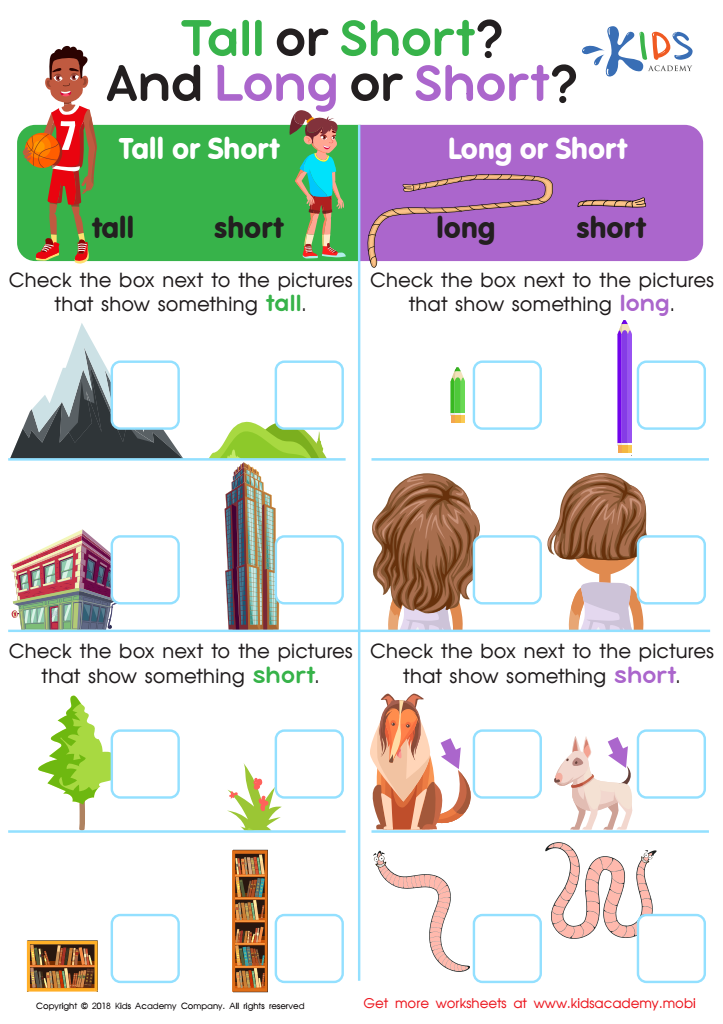

Tall or Short and Long or Short? Worksheet
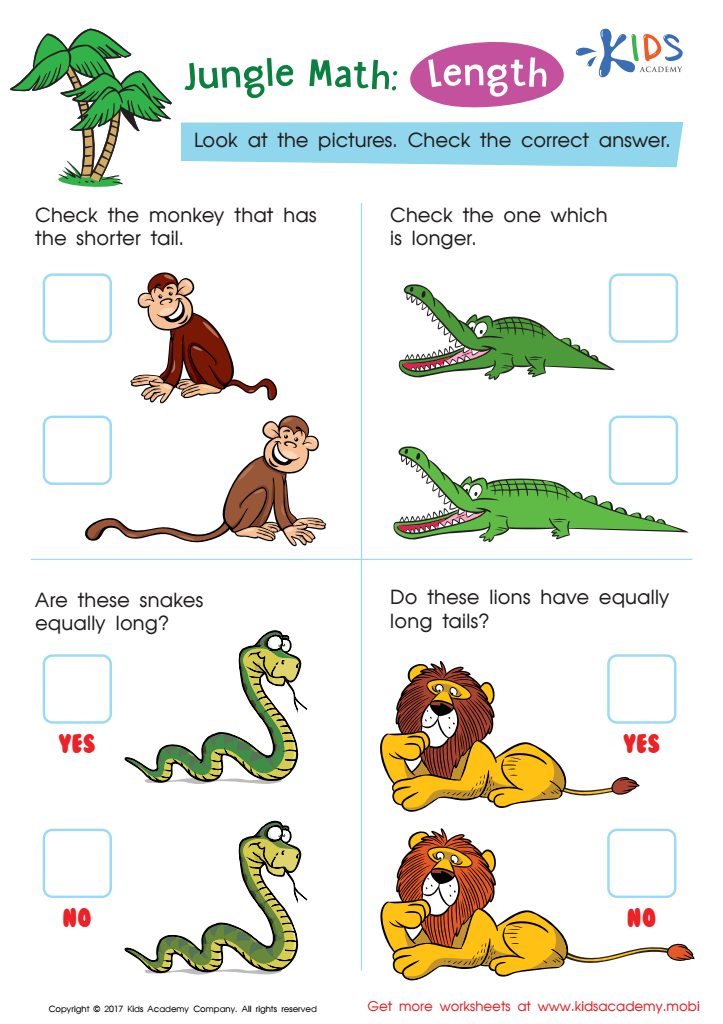

Which One Is Longer - Length Worksheet
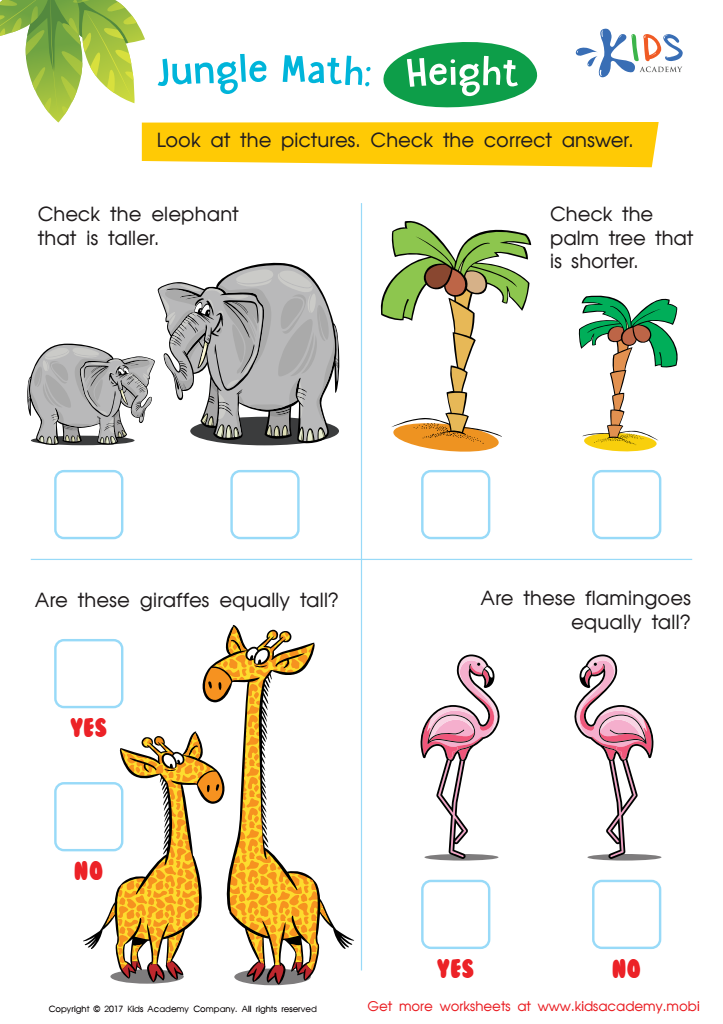

Which Is Taller Worksheet
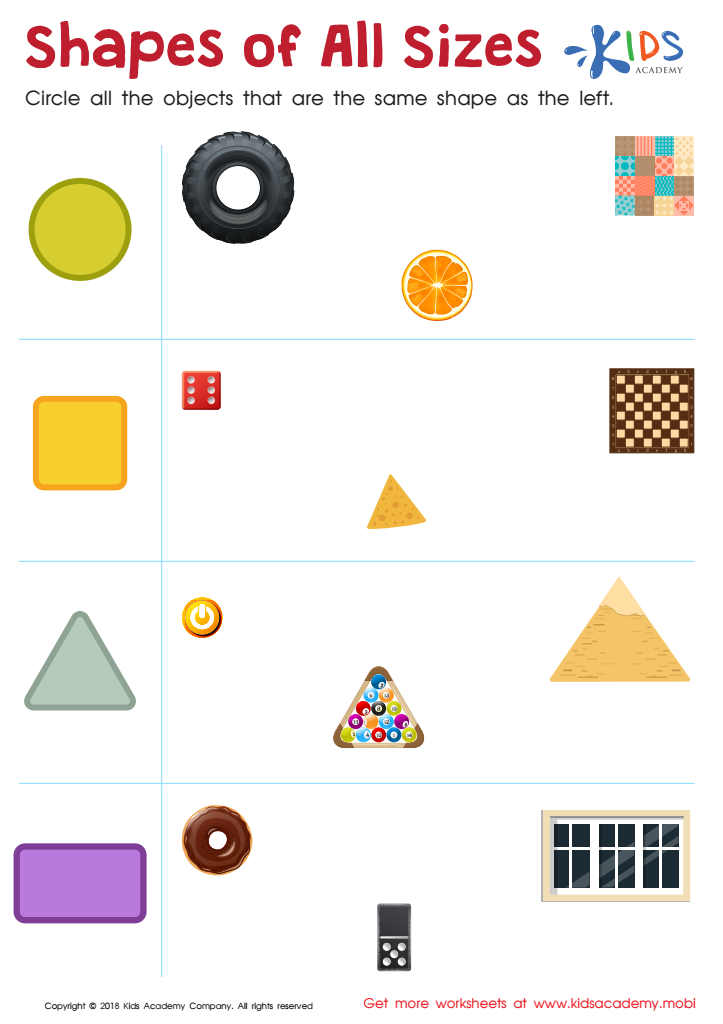

Shapes of All Sizes Worksheet
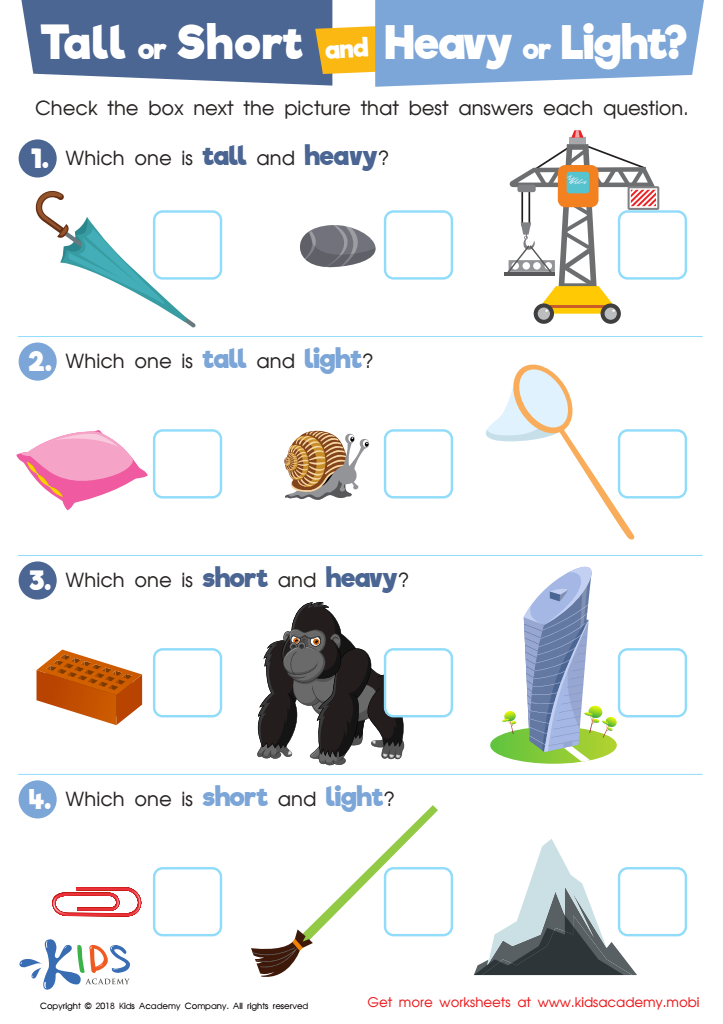

Tall or Short and Heavy or Light? Worksheet
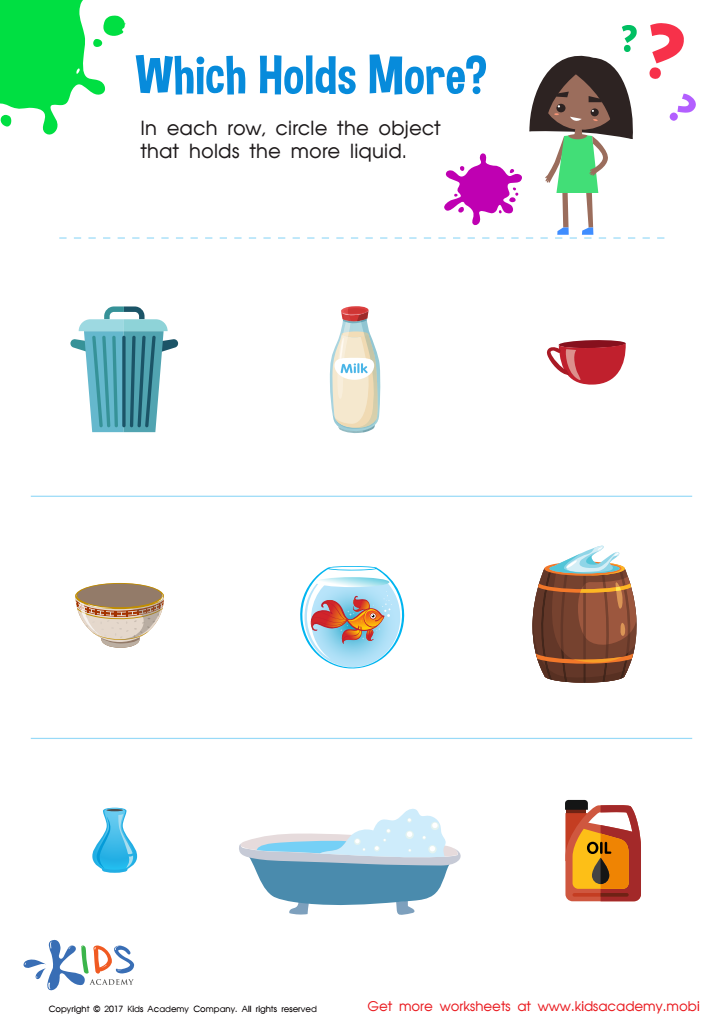

Which Holds More: Capacity Worksheet
Basic measurement concepts are essential for children aged 6-7 as they lay the groundwork for critical thinking and practical skills. During this formative age, children are naturally curious about the world around them, and measurement helps them understand and quantify their environment. For parents and educators, it’s important to nurture this curiosity because measurement skills build upon each other and create a foundation for future mathematical understanding.
Understanding measurement encompasses concepts such as length, weight, capacity, and time. These notions help children grasp comparisons and develop problem-solving skills. For instance, when children learn to measure how long a room is or to estimate the weight of various objects, they enhance their ability to think logically and critically. Moreover, measurement is a life skill—they will encounter it in everyday situations like cooking, shopping, and even during play.
Encouraging early measurement activities can also enhance children's spatial awareness and boost their confidence in handling numbers. As they progress in school, these foundational skills will support their learning in more complex mathematical topics. Involvement in measurement activities also provides a bonded learning experience for parents, making math enjoyable and practical for children. Thus, incorporating basic measurement concepts into learning is crucial for holistic development.

 Assign to My Students
Assign to My Students
















